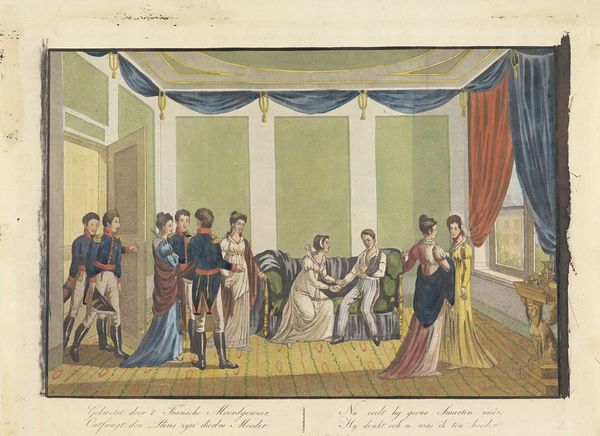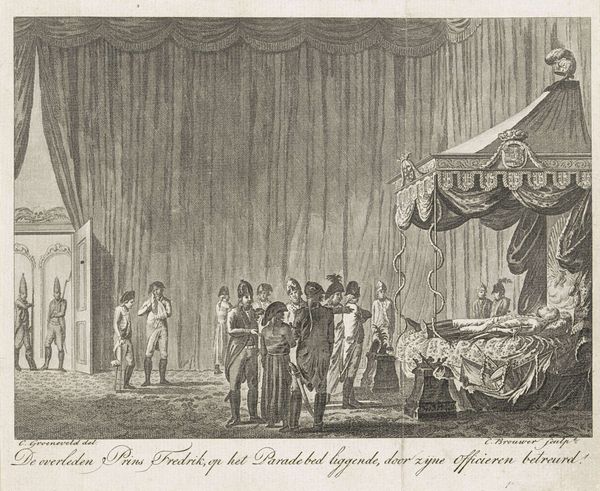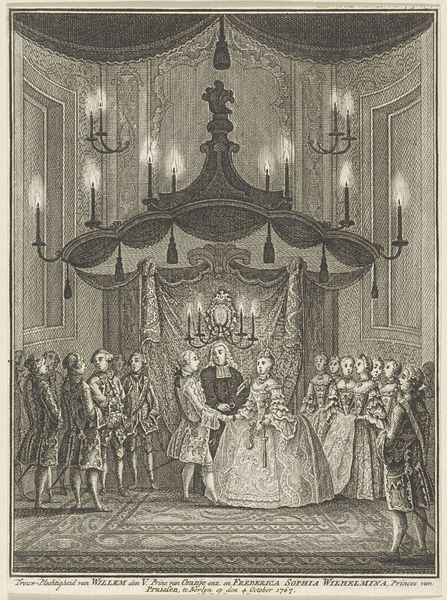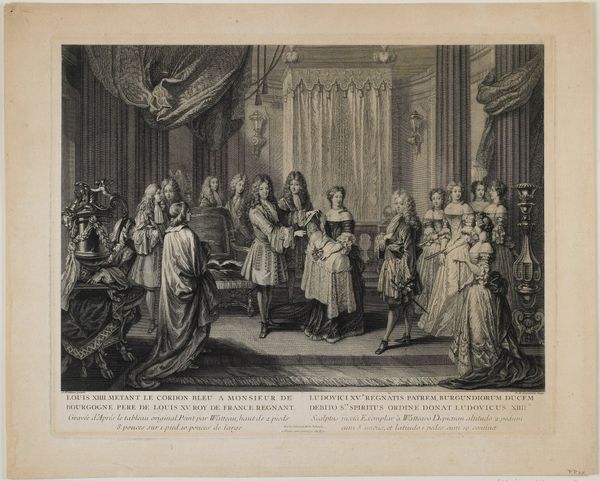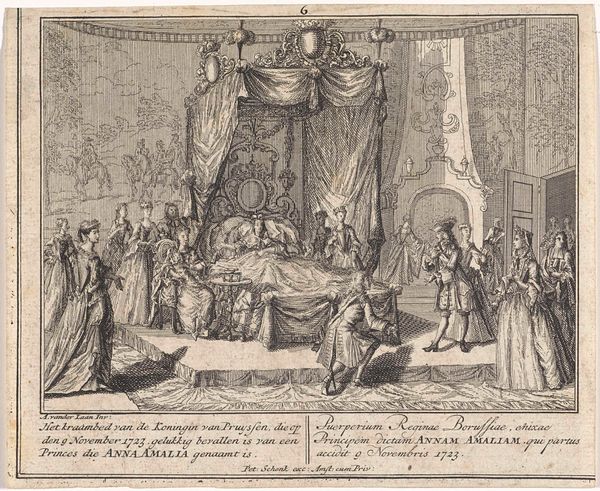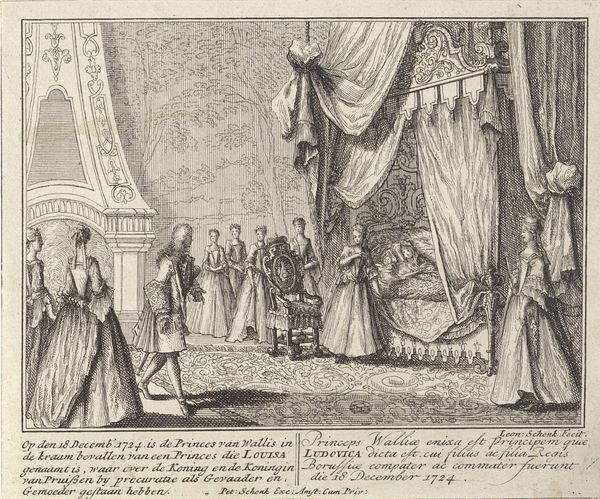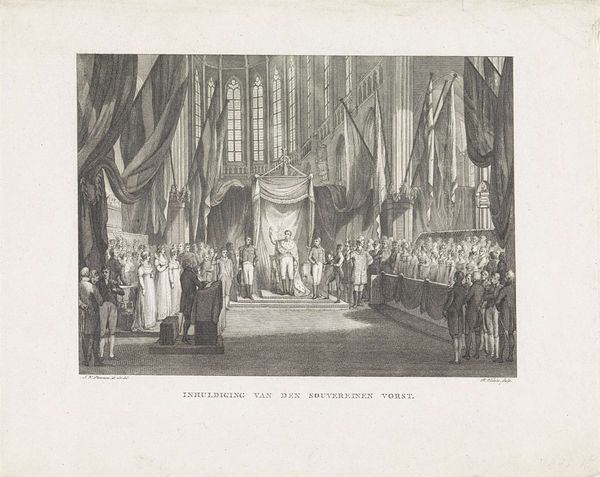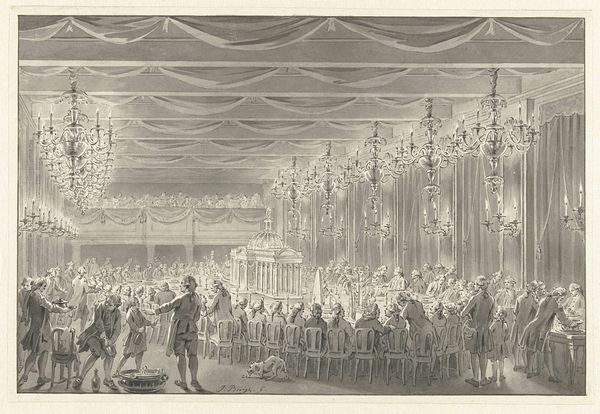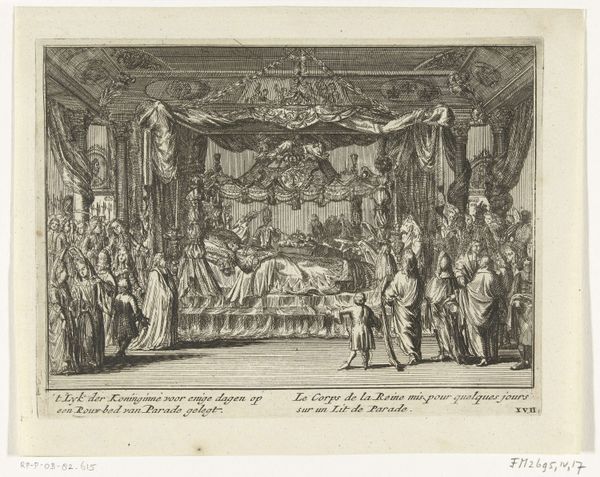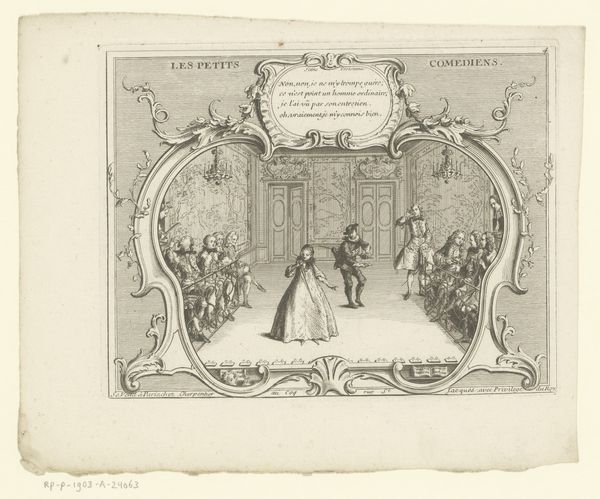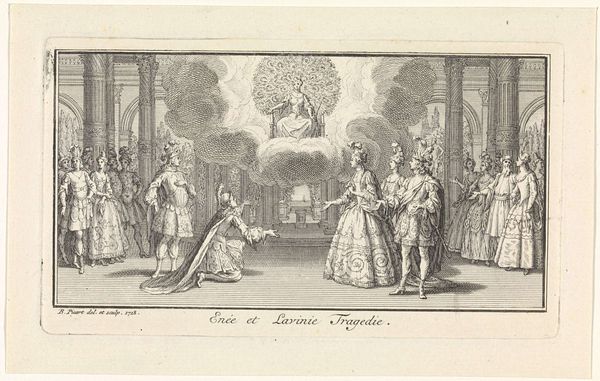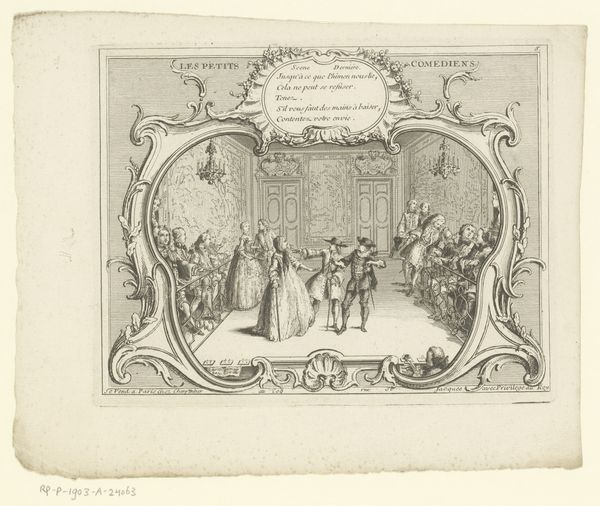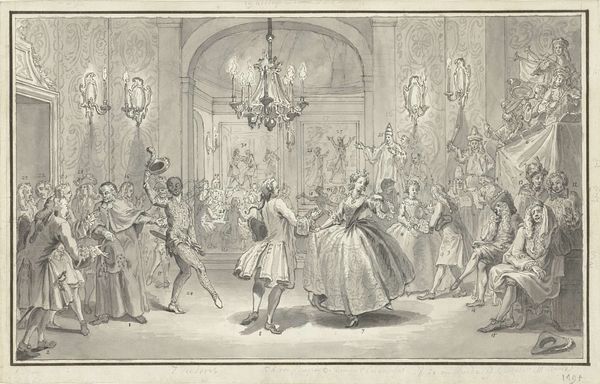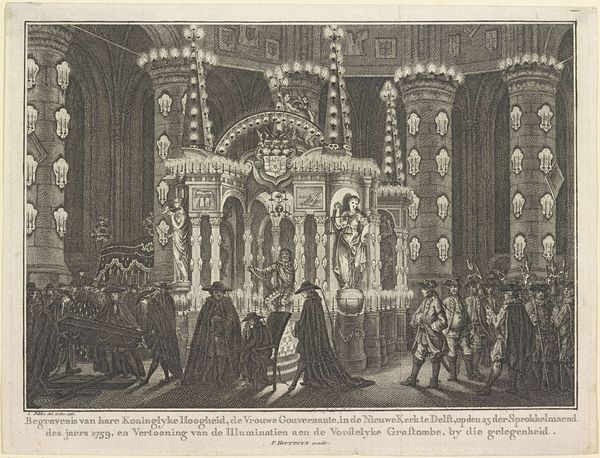
#
aged paper
#
toned paper
#
light pencil work
#
sketch book
#
personal sketchbook
#
journal
#
old-timey
#
sketchbook drawing
#
sketchbook art
#
watercolor
Dimensions: height 471 mm, width 637 mm
Copyright: Rijks Museum: Open Domain
Editor: So, this is "Prins van Neuchâtel voor Maria Louise van Oostenrijk" by Carlo Lasinio, made around 1810. It seems to be a watercolor on toned paper, depicting some sort of royal audience. The atmosphere feels very staged and formal. How do you interpret this work in the context of its time? Curator: Well, we must consider this work not merely as a record of an event, but as a construction of power. Who is represented, and how? Look at Maria Louise, positioned next to Napoleon; her presence serves a strategic purpose. Marriage was, then, often a tool for political alignment and succession. The work's staging contributes to a deliberate visual narrative of dynasty, but who does that narrative exclude? Editor: That’s a really interesting point. It makes me think about all the figures standing around – presumably members of the court and military personnel. Their representation feels almost ornamental, as though they’re simply props reinforcing the power dynamic. Curator: Precisely. Their presence is vital, and it serves to illustrate not just the power of the figures on the throne, but its pervasive impact across the lives and class structures of Europe during Napoleon's time. How might this kind of artwork normalize and even legitimize hierarchical structures? Editor: It presents it all as quite natural and ordered, I guess. Is it problematic to view it that way? To question this order? Curator: Not at all. Engaging with historical works means investigating the undercurrents that made such displays of power palatable—or perhaps even inevitable—to the societies of the time, and to think critically about which narratives have been excluded, even erased, to ensure it. Editor: This has definitely given me a fresh perspective on analyzing historical art! Curator: And for me, too, reflecting on how historical portrayals of power have a continuing impact.
Comments
No comments
Be the first to comment and join the conversation on the ultimate creative platform.
